RMIT’s Fashion Enterprise Global Experience is shaping the next generation of fashion leaders. Launched in 2021 and supported by the Australian Government’s New Colombo Plan, this unique international study tour explores fashion’s environmental impact firsthand—beyond the classroom and deep into Southeast Asia’s fashion industry. Students work alongside local students and industry leaders in Indonesia—and soon India—on real sustainability challenges. From cleaning textile waste from rivers to experimenting with mushroom leather and recycled coal waste, participants learn through action. They develop circular economy solutions and deeper understandings of the fashion supply chain, gaining practical experience and global insights. The program also explores modest fashion, encouraging students to understand cultural and religious values intersecting with sustainability in this growing sector. This program stands out by challenging students’ thinking. Visiting both fast-fashion factories and grassroots sustainability projects, students encounter confronting contrasts within the industry. Moments of “cognitive dissonance” help students rethink their place in fashion’s $1.7 trillion global system. The program has built strong partnerships with over 60 Indonesian businesses and multiple universities, creating a model of education that can be adapted to other countries. It fosters both environmental awareness and genuine cross-cultural collaboration. Results are powerful. Australian students return with life-changing insights, while Indonesian students gain profound global perspectives. The two-way exchange builds lasting networks, equipping future fashion leaders with mindsets and skills to make real change. As the program expands to India and beyond, RMIT leads the way, creating global, hands-on sustainability education for the fashion industry.

4th PLACE
SDG Impact Award Award
Fashion Enterprise Global Experience initiative
4th PLACE SDG Impact Award Award
RMIT University - Australia
"Empowering Global Sustainable Fashion Leaders "
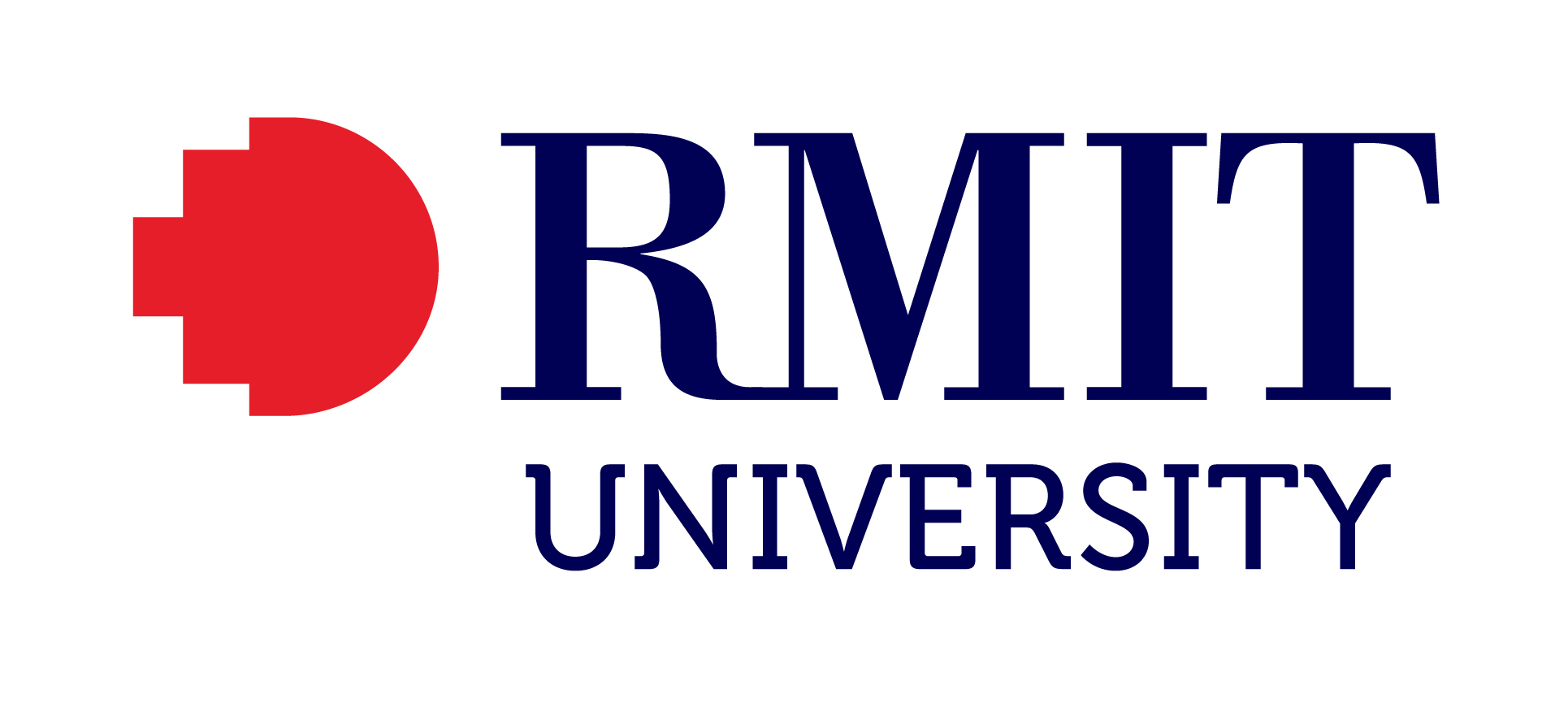
Engage on social media
( RMIT Fashion Enterprise Global Experience_Sustainability )
(RMIT_Global Experience Course_Bachelor of Fashion Enterprise )
(Official RMIT YouTube account )
(Official RMIT Instagram account )
(Official RMIT LinkedIn account )
Have a say and vote for this entry to win the People's Choice Award!
500 points per vote
Provide your email address and click on "vote". You will then receive an email that enables you to verify your vote by clicking on a link.
1500 points for each share/re-post; 500 points for each like
This entry has not provided any social media links for community voting.
Summary
Key People
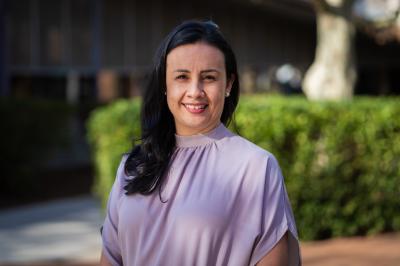
Dr Carolina Quintero Rodriguez
Manager of the Bachelor of Fashion (Enterprise) Program
School of Fashion and Textiles,
RMIT University
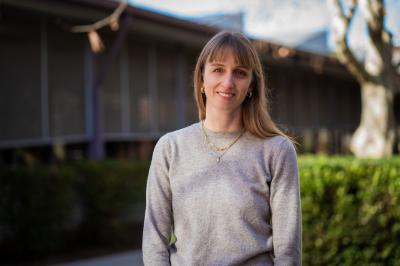
Dr Harriette Richards
Senior Lecturer in the Bachelor of Fashion (Enterprise)
School of Fashion and Textiles,
RMIT University
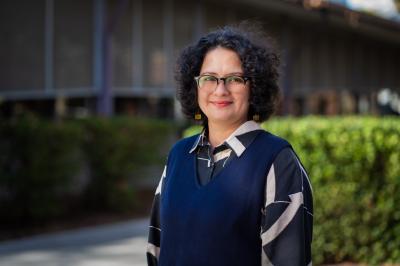
Dr Rashmita Bardalai
Lecturer in the Bachelor of Fashion (Enterprise)
School of Fashion and Textiles,
RMIT University
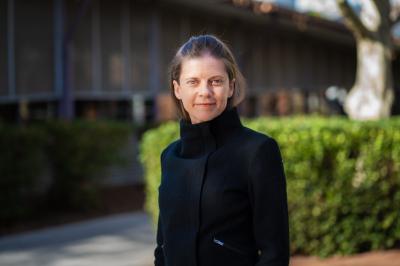
Dr Anna Branford
Careers Educator
The Centre for Education Innovation and Quality,
RMIT University
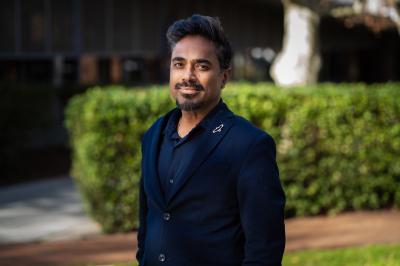
Associate Professor Dr Tarun Panwar
Associate Dean Enterprise and Technology
School of Fashion and Textiles,
RMIT University
Acknowledgements
The Bachelor of Fashion Enterprise at RMIT University gratefully acknowledges the support of the School of Fashion and Textiles at RMIT UNiversity, the New Colombo Plan for its generous funding, and the valued partnership with International Internships for helping bring this initiative to life. We also extend our sincere thanks to all the businesses and individuals who have collaborated with the program to provide an exceptional experience for students.
Images
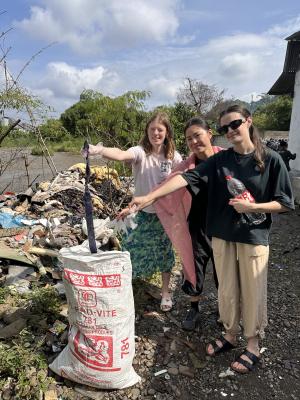
Students learning about the impacts of fashion pollution: Napak Bhumi waste collection
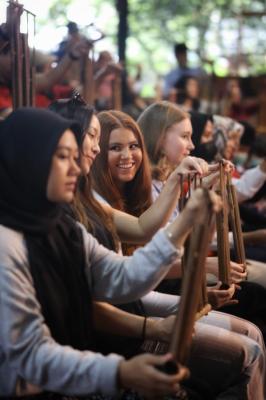
Students immersing into the Indonesian Culture: Learning to play Angklung (musical instrument made of Bamboo)
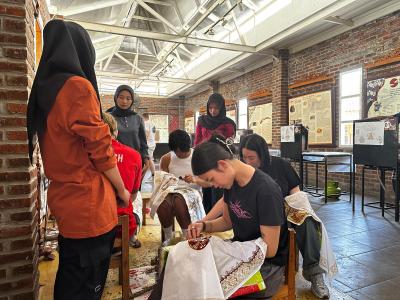
Students immersing into the Indonesian Culture: Learning to make Batik (traditional Indonesian textile art form involving a wax-resist dyeing technique)
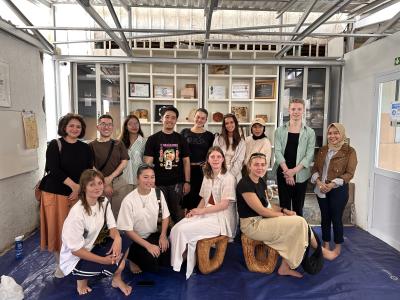
Students learning about the impacts of fashion pollution: Developing mushroom leather as an alternative to animal leather
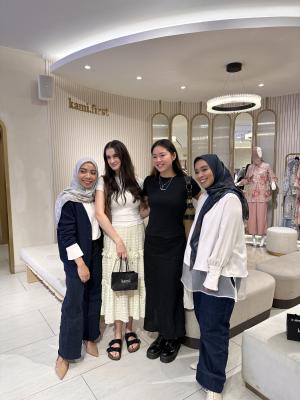
Students immersing into the local modest fashion industry: Visit to Kami Idea
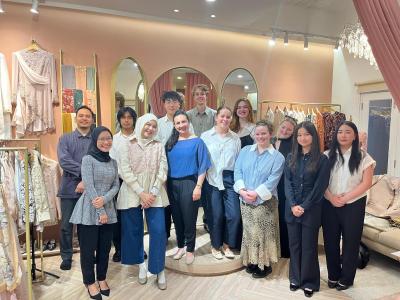
Students immersing into local modest fashion industry: Visit to Wiranti Kurnia Bride
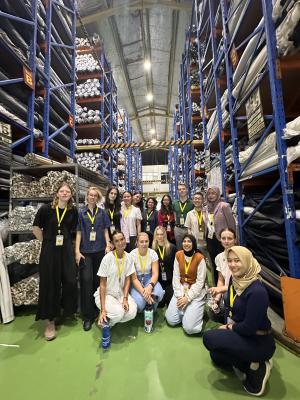
Students learning about the large-scale manufacturing production: Visit to Trisco
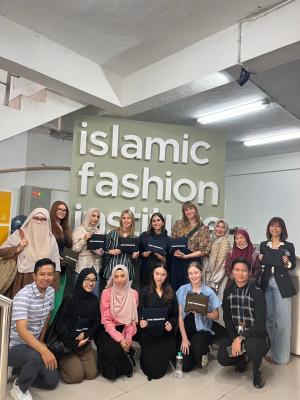
Students engaging with local students and institutions: Visit to the Islamic Fashion Institute
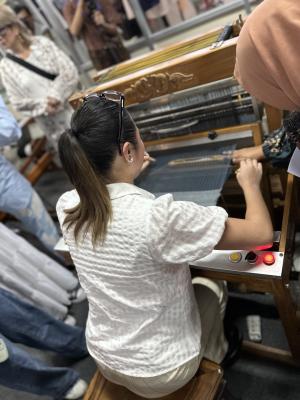
Students engaging with local students and institutions: Visit to the Islamic Fashion Institute’s manufacturing hub
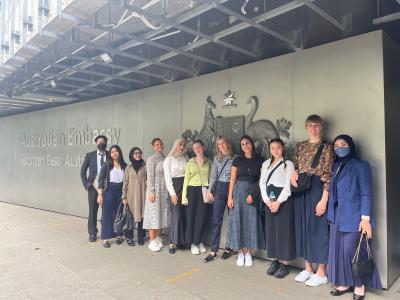
Students Visiting the Australian Embassy in Jakarta
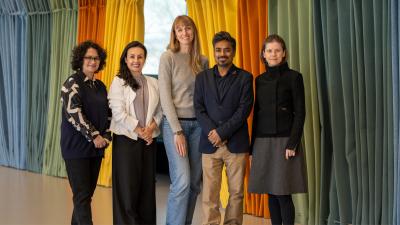
RMIT’s Fashion Enterprise Global Experience_Team
IMPACT STORY
Impacting lifes
RMIT’s Fashion Enterprise Global Experience immerses students in real-world fashion sustainability challenges. Connecting education, industry, and culture, students collaborate with Indonesian businesses and students, developing sustainable, circular economy solutions. Through first-hand experiences, from river cleanups to product development using coal waste, the course has profound, life-changing impacts on the students as they prepare for careers within this precarious industry. Student reflections speak of the transformational impact of the course:
Reflecting on her participation in river cleanups, one student said: “Being there, in the water, pulling out fabric with my own hands—it changed me. It made sustainability feel real. Urgent”.
Another described new-found professional values, noting: “It's my responsibility to do the right thing when I get to work in the industry.”
Describing new insights into modest fashion another remarked: “I quickly learned that modest fashion is not solely tied to religion. It's a style choice that can be embraced by anyone, regardless of their faith.”
Regarding different scales of fashion production, one student explained, “The highlight for me was seeing how fashion operates on a different scale in another country, as opposed to what I’ve been used to in Australia.”
Others expressed admiration for fashion in Indonesia. “I was fascinated by the diverse range of styles present in the Indonesian fashion industry, from visiting various designers to manufacturers and factories.”
Through this program, students become part of a movement. The relationships built, the experiences shared, and the insights gained make this opportunity a unique and profound catalyst for change.
LEARNINGS
Lessons learned
Several key learnings have emerged from the RMIT Fashion Enterprise Global Experience to inform similar future initiatives.
Firstly, the experience of being confronted with uncomfortable truths can drive deep, engaged learning. Cognitive dissonance emerged as a particularly significant driver of insight. Exposure to the contrasts between large-scale fast-fashion manufacturing and textile waste collection in Indonesia was a notably transformative aspect of the study experience for participants.
Secondly, immersive, real-world learning emerged as a strong driver of students’ personal growth and professional commitment. Hands-on engagement supported their growing personal agency, igniting their values and a sense of purpose to effect change in their own communities and through their own careers.
Thirdly, cross-cultural collaboration was key to the development of complex insights and mutual understandings. Diverse partnerships with local businesses, NGOs, and educational institutions support the development of initiatives that are relevant and impactful across a range of cultural contexts. In Indonesia, students observed cultural and economic factors as key determinants in whether solutions are practical or even possible. This understanding of local culture, values, needs, and constraints is essential to meaningful change.
Finally, sustainability is not a fixed solution, but an evolving journey requiring ongoing reflection and willingness to respond to feedback, adapt to change, and engage with lived realities.
By focusing on immersive experiences, cross-cultural exchange, and empowering students to act, the RMIT Fashion Enterprise Global Experience forms part of a broader picture of change, equipping future leaders to tackle the world’s most pressing sustainability challenges within the fashion industry.
FUTURE PLANS
What's coming?
RMIT’s Fashion Enterprise Global Experience is committed to expanding its impact and reach in sustainability education and industry transformation. Building on the success of the program in Indonesia, the initiative is now expanding into other major fashion manufacturing hubs. In 2025, New Colombo Plan scholarships will support 20 students to travel to Indonesia and a further 20 to India. This will enable a broader cohort to engage with diverse global supply chain contexts and sustainability challenges.
The program’s adaptable framework of real-world industry engagement, cross-cultural collaboration, and reflective learning will be tailored to local contexts in each new region the program expands into. Students will not only gain global perspectives but also learn how to apply sustainability principles and initiatives in varied economic and cultural locations. Partnerships with innovative businesses and universities will continue to be central, fostering knowledge exchange and entrepreneurial thinking.
Future plans also include integration of the program’s experiential model into the RMIT curriculum, influencing how sustainability is taught across disciplines. The initiative aims to document and share its methods, supporting other institutions to embed immersive, SDG-aligned learning into their own programs.
By scaling internationally and embedding its approach institutionally, RMIT’s Fashion Enterprise Global Experience aspires to cultivate a new generation of leaders who are equipped to drive sustainable change in the global fashion industry, ensuring the initiative’s impact is far-reaching and enduring. We aim to grow a generation of fashion professionals who are not only career-ready but globally conscious, system-aware, and prepared to lead meaningful change.

